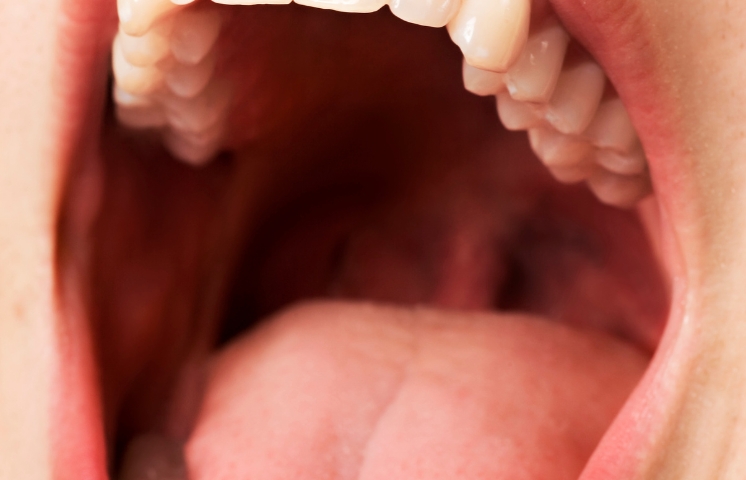We are not a registered Medicare/Medicaid Provider

Jaw pain can be incredibly disruptive, making everyday activities like eating and speaking a challenge. If you find yourself dealing with persistent discomfort, it might be time to consider whether you need treatment for TMJ (temporomandibular joint) disorder. Understanding the signs and symptoms of this condition, as well as the available treatments, can help you make an informed decision about seeking professional help.
Recognizing the Symptoms
One of the first steps in addressing jaw pain is recognizing the symptoms of TMJ disorder. Common signs include:
- Persistent Pain: Pain in the jaw joint, face, neck, or shoulders that doesn’t go away.
- Difficulty in Chewing: Trouble or discomfort while chewing, biting, or yawning.
- Clicking Sounds: Popping, clicking, or grating sounds when you move your jaw.
- Lockjaw: A sensation where your jaw gets stuck or locked in an open or closed position.
- Ear Issues: Earaches, hearing problems, or ringing in the ears not linked to other causes.
- Headaches: Frequent headaches or migraines that seem to originate from the jaw area.
If you experience any of these symptoms consistently, it might be time to look into TMJ treatment options.
What Causes TMJ Disorders?
Understanding the root causes of TMJ disorders can help in identifying the best treatment. Several factors can contribute to the development of TMJ issues:
- Injury: Trauma to the jaw or head can lead to TMJ disorders.
- Arthritis: Conditions like osteoarthritis or rheumatoid arthritis in the jaw joint.
- Bruxism: Teeth grinding or clenching, especially during sleep, can strain the jaw muscles.
- Stress: High-stress levels can cause tension in the jaw muscles, exacerbating TMJ problems.
- Malocclusion: Poor alignment of the teeth can lead to uneven pressure on the jaw joint.
Identifying the cause is crucial for effective treatment. A healthcare professional can help pinpoint the exact reasons behind your TMJ disorder.
Non-Surgical Treatment Options
Before considering surgical intervention, various non-surgical treatments can alleviate TMJ pain. These treatments are often the first line of defense and can provide significant relief.
Medications
- Pain Relievers: Over-the-counter pain medications like ibuprofen can reduce inflammation and alleviate pain.
- Muscle Relaxants: These can help relieve muscle tension in the jaw, providing relief from pain and discomfort.
- Anti-Anxiety Medications: Stress management is essential, and anti-anxiety medications can help reduce muscle tension caused by stress.
Physical Therapy
Physical therapy exercises specifically designed for TMJ disorders can strengthen jaw muscles, improve flexibility, and reduce pain. Techniques such as ultrasound therapy, heat and ice applications, and stretching exercises are often recommended.
Dental Appliances
- Mouthguards: Custom-made mouthguards can prevent teeth grinding and clenching, offering relief from TMJ symptoms.
- Splints: Dental splints can help reposition the jaw to reduce strain on the TMJ.
Lifestyle Changes
Simple lifestyle modifications can make a significant difference in managing TMJ pain:
- Diet: Avoid hard, chewy foods that can strain the jaw. Opt for soft foods and cut food into smaller pieces.
- Posture: Maintain good posture to avoid unnecessary strain on the jaw and neck muscles.
- Stress Management: Techniques like yoga, meditation, and deep breathing exercises can reduce stress and alleviate jaw tension.
When to Consider Surgical Treatment
If non-surgical treatments don’t provide sufficient relief, surgical options may be considered. These are generally reserved for severe cases where other treatments have failed.
Arthrocentesis
This minimally invasive procedure involves injecting fluid into the jaw joint to remove debris and inflammatory byproducts. It’s often used when the jaw is locked.
Arthroscopy
Arthroscopy is a more advanced procedure where a small camera is inserted into the joint. It allows for direct treatment of the TMJ, including the removal of inflamed tissue or realignment of the disc.
Open-Joint Surgery
In severe cases, open-joint surgery might be necessary to repair or replace the TMJ. This option is typically considered only when all other treatments have been unsuccessful.
Choosing the Right Treatment
Deciding on the appropriate treatment for TMJ disorder involves a thorough evaluation by a healthcare professional. They will consider factors such as the severity of your symptoms, the underlying cause, and your overall health. It’s important to discuss all available options and their potential risks and benefits.
Long-Term Management and Prevention
Once you’ve received treatment for TMJ disorder, ongoing management is crucial to prevent recurrence. Regular follow-ups with your healthcare provider, maintaining good dental hygiene, and continuing stress management techniques are essential components of long-term care.
Regular Check-ups: Regular dental and medical check-ups can help monitor the condition of your TMJ and catch any early signs of problems.
Home Care Practices: Continuing the exercises and lifestyle changes recommended by your therapist or doctor can help keep your TMJ healthy. This includes maintaining a soft diet, practicing good posture, and using mouthguards if necessary.
Stress Reduction: Ongoing stress management is vital. Techniques such as mindfulness, exercise, and adequate sleep can help reduce the risk of TMJ flare-ups.
If you’re experiencing unbearable jaw pain and suspect you might have TMJ disorder, seeking professional help is crucial. Understanding when TMJ treatment is needed can make a significant difference in your quality of life. In Haymarket, several options are available for TMD/TMJ treatment. Consulting with a specialist can provide you with a tailored treatment plan that addresses your specific needs and helps you find relief from pain.



